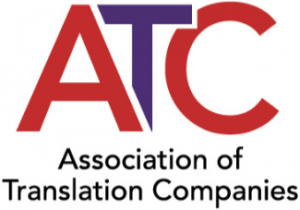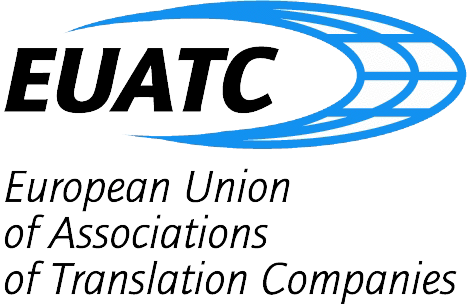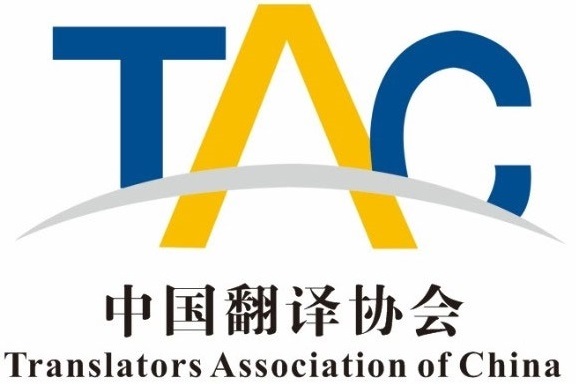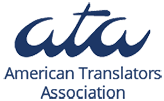We work hard at CTS to ensure our service will exceed your expectations.
We strive to provide you with high quality and hassle-free translation and interpreting services.
CTS offers a wide range of language services to support your business operations. We aim to exceed your expectations on all of our services, on every occasion.
Professional interpreters for your meetings and events, anywhere in the world.
Professional translations of your documents, websites, software, apps, and multimedia.
Accurate transcripts of your audio & video files, proofread, formatted, and timestamped.
CTS is accredited and certified by professional translation associations in the UK, EU, USA, and China. We maintain professional standards in translation and conduct all our business dealings ethically.




Our business translators have the skills and expertise to translate a wide variety of business documents, including contracts, reports, PPT presentations, business plans, and financial documents.
Translation Memory (TM) is a database of previously translated sentences that can be automatically recalled on a new translation project. TM supports our translation processes by significantly improving the consistency and efficiency of our projects, which leads to increased translation quality and decreased costs for our clients.
Termbase is a database of terminology and its corresponding translation. It allows us to create custom glossaries that are specific to your projects. If you have preferred translations of key terminologies or already have a glossary that you would like to use, we can use Termbase to help you apply them consistently to all your translation projects.


At CTS, we have developed customised workflows to streamline our projects and ensure consistent quality in all our translations. The first step of our workflow is to review your document and understand your requirements. Next, we assign the project to a qualified translator, or team of translators, with proven expertise in the relevant subject matter.
Once the initial translation has been completed, a second linguist will proofread and edit the translations using QA tools to check for mistranslations, grammatical errors, typos, consistency issues, and other common errors. The final steps involve Desktop Publishing and final proofreading before it is delivered to the customer for feedback.
CTS offers translation and interpreting services in over 120 languages. Contact us directly for any language or dialect that you do not see listed below.
Business translation services involve translating various business-related documents, materials, and communications from one language to another. This can include translating contracts, marketing materials, financial reports, websites, emails, and more. The aim is to ensure clear and accurate communication across different languages and cultures, facilitating international business operations and enhancing global reach.
The cost of our business translation services varies based on the word count, the type of content, and the language pair. We offer competitive pricing and provide detailed quotes upon request. Our pricing structure is transparent, with no hidden fees, ensuring you receive high-quality translation services at a fair price.
Absolutely, our translators are highly qualified professionals. They possess advanced degrees and have extensive translation experience in their respective fields of expertise. Additionally, our translators undergo rigorous testing and continuous professional development to stay updated with industry trends and best practices. This combination of education, experience, and ongoing training guarantees that our translations are accurate, culturally relevant, and meet the highest standards.
We understand that many translation projects involve confidential and sensitive information. We have strict protocols in place to ensure the security and privacy of your documents. Our translators and staff are bound by confidentiality agreements, and we use secure methods for file transfer and storage. Furthermore, we strictly limit access to customer data only to authorised personnel who require it for their specific job responsibilities.
Translation errors can occur due to literal translations, cultural misunderstandings, and misinterpretation of technical terms. To avoid these, we employ several strategies. Our translators are trained to understand and convey the meaning behind the words, rather than just translating them verbatim. We also use specialist software to identify and correct any potential errors. Additionally, we maintain open communication with our clients to clarify any ambiguities and ensure that the final translation is error-free.
For large translation projects, we follow a structured process to ensure efficiency and consistency. Our project managers work closely with you to understand your requirements and set clear milestones. We assemble a dedicated team of translators, reviewers, and editors who collaborate using translation memory tools to maintain consistency across the entire project. Regular updates and open communication ensure that you are informed of the progress and any potential issues are addressed promptly.
Keeping the tone and style in translation is crucial, just as crucial as getting the words right. Different documents demand different tones and styles to really hit the mark. For instance, legal documents need a formal and precise tone, while marketing materials should be engaging and persuasive. Our translators excel at adapting the tone and style to suit the document's purpose and audience. This ensures that the translation not only accurately conveys the information but also delivers the intended impact.
Yes, we offer comprehensive post-translation support to ensure your documents serve their intended purpose effectively. This includes reviewing and revising translations based on your feedback, assisting with any updates or modifications needed, and providing continuous support for ongoing projects. Our commitment to quality and client satisfaction extends beyond the initial delivery of the translated document.
Our clients praise us for our accurate translations, personable service, and on-time delivery.
Here are some of the amazing things they have said about working with us.